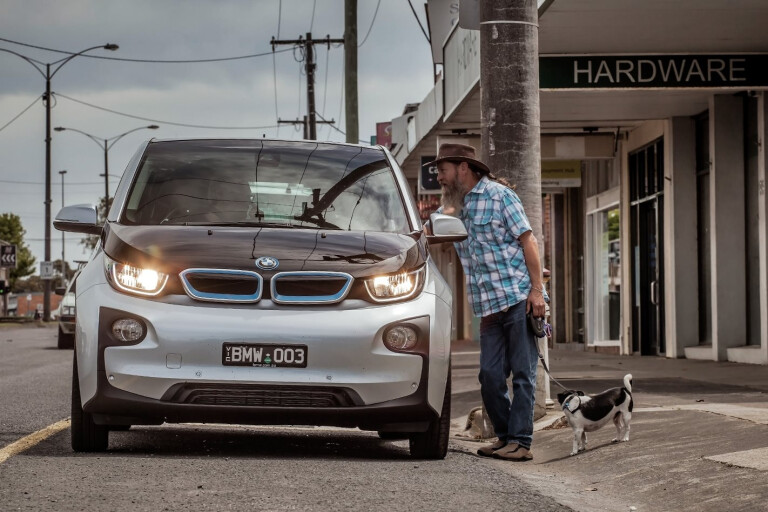
Let’s kick off with a positive: for the first four months of 2017, electric car sales have boomed in Australia.
Private passenger car sales in the segment were up more than 70 percent in April, and across the first four months of the year they’re bubbling along at a buoyant 20 percent. Turn your eye to battery-powered SUVs, and those numbers jump to 200 percent for the month, and are up more than a third for the year so far.
But here comes the reality check: that’s based on a combined 40 sales for the first four months of this year. It also only represents 0.01 percent of the market. That’s right, for every single electric car sold so far in 2017, the market has moved more than 9000 conventionally engined cars. Ouch.
Those figures are skewed slightly as Tesla politely declines every request to disclose how many cars it sells here. It is believed to move fewer than 10 a month of its Model S large hatchbacks, and the Model X seven-seat SUV-styled people-mover.
Why so few electric cars when makers the world over are talking big about electrification?
Speak with the brands, and they point to a lack of government support here encouraging new-car buyers to switch to electrons over hydrocarbons. The brands are screaming for help – BMW and Nissan have both been very vocal that in order to offset the high cost of owning an electric car, governments need to step in and help offset some of the cost.
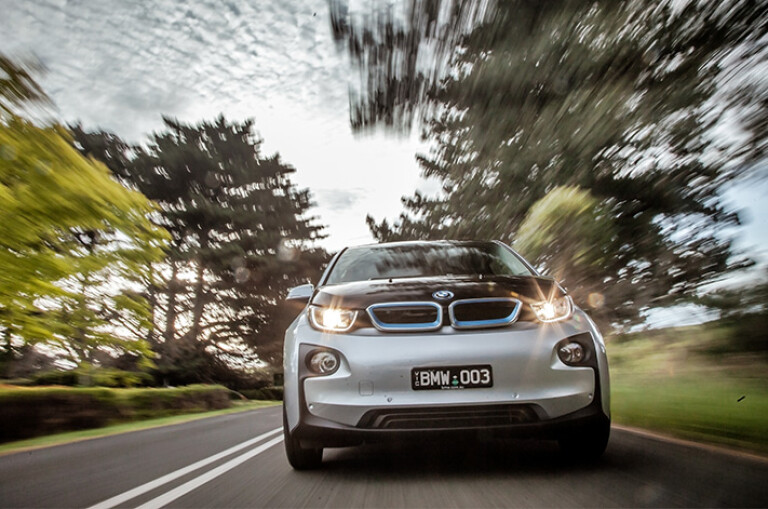
This sort of happens now at some levels, with Victoria offering $100 off registration fees on hybrid and battery-powered vehicles, and the ACT waiving stamp duty on highly fuel-efficient vehicles, for example, which help a bit.
But the car makers look to the thousands of dollars that governments overseas throw at electric car buyers, and question why the Australian government doesn’t do the same.
It’s a chicken and egg thing. There isn’t much incentive for businesses to roll out publicly accessible recharging infrastructure, so it happens very slowly. In turn, the lack of public infrastructure is a turn-off for buyers who fear they will run out of electrons somewhere between Point A and Point B – something that infamously happened in Wheels Car of the Year testing. The car still won.
There are some free recharging stations around, but they’re usually at shopping centres where there’s an economic benefit: the centre’s management spend the equivalent of a cup of coffee topping up your car, and you spend hundreds of dollars on clothes bought from the shops inside in the hour or so the car takes to juice up. It’s why you see the pram-friendly parking bays close to the doors at supermarkets: they aren’t being kind to mums, they’re being market-savvy.
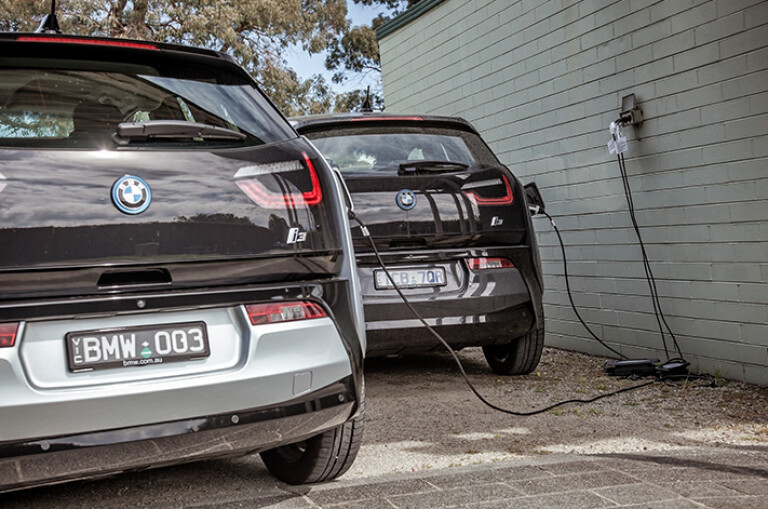
There are some concessions that the carmakers offer. Buy a $61,800 BMW-badged i3 electric car – or one of the German luxury brand’s plug-in petrol-electric hybrids that, at the push of a button, can run on electricity alone for decent distances – and BMW will pick up the tab for recharging it via a nationwide network of ChargePoint stations. Similarly, buy a Tesla Model S, and the Californian car maker will give you about 1600km of free electricity a year via its network of public Supercharger stations. After that you pay.
Then there’s the range of electric cars on offer. We’ve mentioned the BMW i3 and the Tesla twins, but what else is out there?
Not much. Mitsubishi has retired its hugely expensive (it almost hit $50,000) and somewhat impractically small i-MiEV battery-powered hatchback that in 2010 became the first production electric car on sale in Australia – even if you could only order it in the showroom rather than drive away in one.
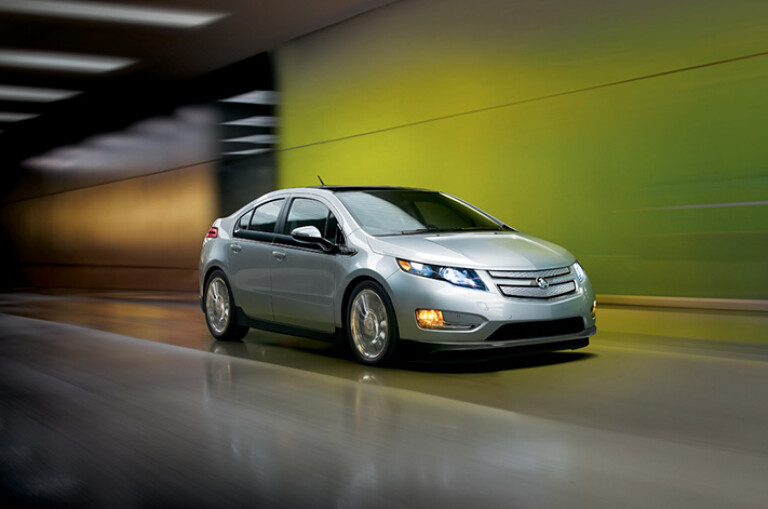
Holden had the Volt, a circa-$60,000 rebadged Chevrolet Cruze hatchback that also featured a 1.6-litre petrol engine that it used mainly to recharge its bank of batteries. Highly priced and with a limited all-electric range, it struggled.
And Nissan’s $39,990 Leaf – Australia’s best-selling electric vehicle to date – has recently dropped off the market as the Japanese car maker makes plans to bring in an all-new model that builds the car’s borderline-useful electric range, something sure to make it more attractive to buyers.
We’re hearing rumbles, too, that Renault is keen to bring its next-generation Zoe – a compact, chic-styled battery-fuelled hatchback – to Australia after spending a good couple of years evaluating the previous-generation car for our conditions.
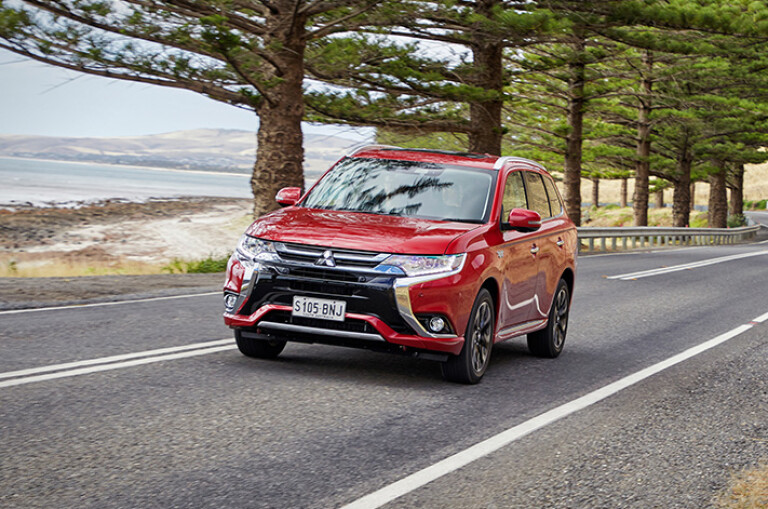
The $50,490 Mitsubishi Outlander PHEV mid-size SUV is classed as an electric car even though it has a 2.0-litre petrol engine under its bonnet used for recharging the batteries on the fly, but it will also sometimes drive the front wheels. It will travel for more than 30km on battery power alone in the real world, though.
There are other cars that will run short distances on electricity alone, but are classed as hybrids, not electric vehicles.
Then there’s recharging at home. Installing a wall charger can be an expensive proposal for some owners, crossing over into thousands of dollars, and depending on the length of the commute, you could still have to plug the car in every day to top it up. It’s the only real blight on the experience, and car makers are working on wireless recharging tech to replace it.
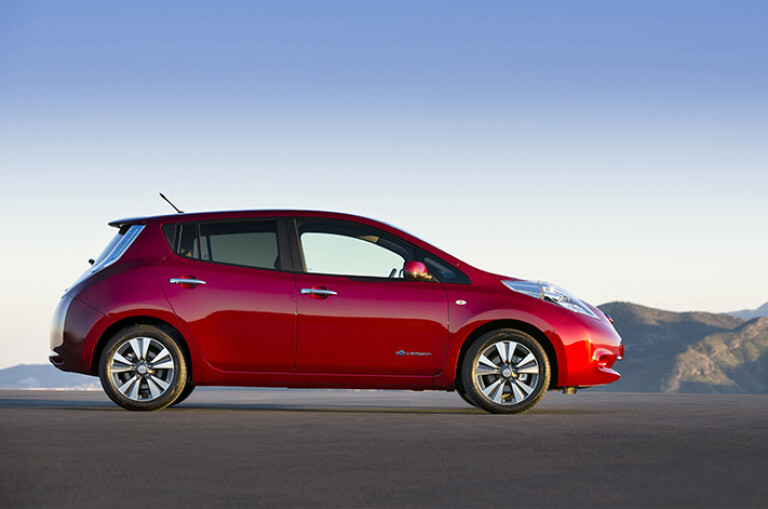
But at the moment, the car makers need electric cars more than we do. If the Australian government ever introduces congestion zones or locks off roads to emissions-spewing cars, all of a sudden those that don’t burn fuel become more attractive.
And petrol prices are still really cheap, making electric cars more expensive to buy than conventional ones, but not that much cheaper, or convenient, to run.
So is now the time to buy an electric car? Not really.
But it’s early days yet for the electric car industry. Fuel won’t stay cheap forever, and particularly in cities such Sydney and Melbourne, the idea of a congestion charge has plenty of government appeal and is regularly up for discussion.
The reasons for buying an electric car are mainly cosmetic. You get some free fuel, there’s the ability to recharge at home
The electric car’s time is still well ahead of it.
COMMENTS